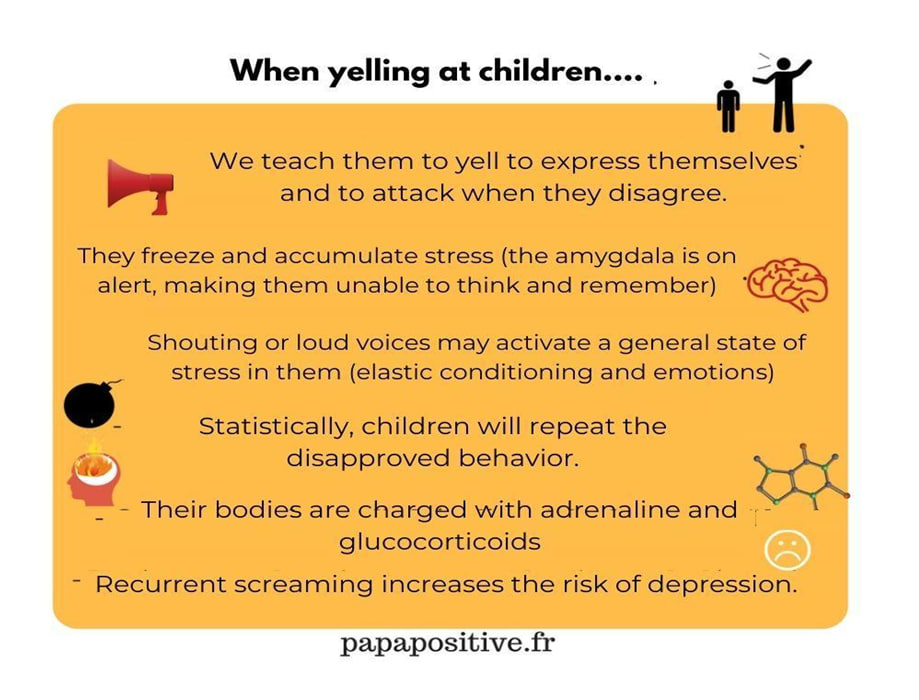
Punishment
Today, Ines, a supervisor in Burkina Faso, suggests that we reflect on the cries used as a response to a child who refuses to cooperate.
What parent has never yelled at their child?
It is sometimes very difficult to stay calm and not get upset when faced with inappropriate behavior from a child, especially if it happens in a public place or at home repeatedly.
For example: the child starts rolling around on the floor in public causing people to stare. After being asked to be quiet, he or she does not obey. In anger, you yell in an attempt to get him·her to obey by using phrases such as "Be quiet! "Don't do that! "Sit down!
What you need to know:
Yelling at your child when you are at your wits' end does not make your child understand his/her inappropriate behavior. Generally, this technique does not produce any results.
According to neurologists, inside the brain, there is what is called the amygdala. Under the effect of screaming, the amygdala secretes stress hormones. The child does not know what to do with this stress and will start screaming or behaving aggressively.
If the screaming is repetitive, the child may be cut off from his or her emotions. This can have a negative impact on the development of the child's personality, especially on his·her self-esteem. It can also lead to depression and increased aggressive behavior.
The child learns by imitation, in mirror effect: when you yell, you send the message to your child that it is a way to get what you want. In turn, the child will use this technique to get what s·he wants.
Therefore, it is best to adopt caring behaviors toward children in order to foster their psychological construction and development.
As a parent what other techniques do you use to avoid yelling at your children? Has anyone ever yelled at you? How did it make you feel?
As a professional, how do you support parents who ask you for help or advice?
